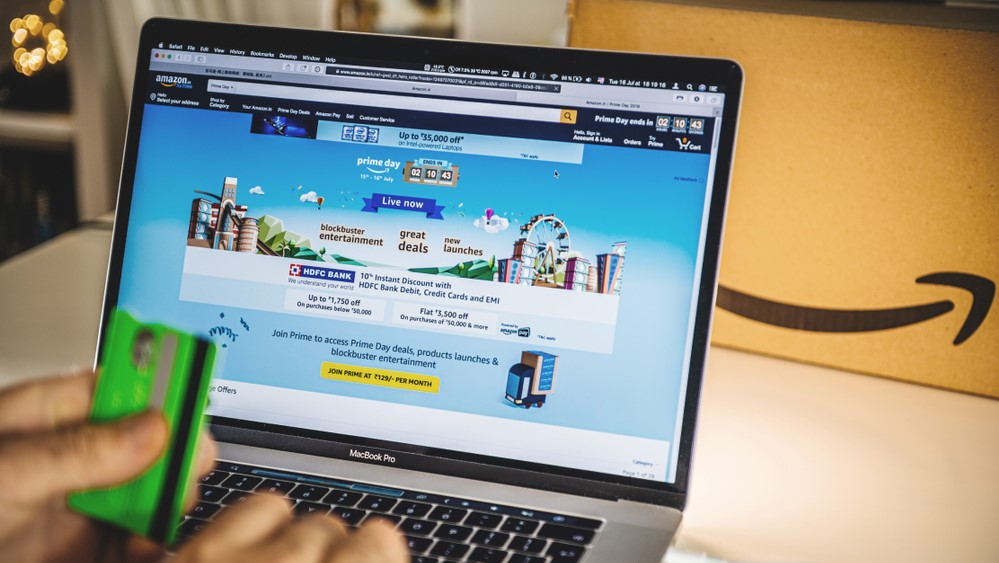
Edit: Amazon has clarified that the decision to retire Dash buttons was not a result of the German court ruling, but a shift to other means of quick purchasing, and the physical Dash buttons have been replaced by virtual versions.
All Amazon Dash buttons will stop working at the end of August – and that’s a good thing. Dash Buttons made re-ordering everyday items like toilet paper and clothes detergent so simple, you didn’t even need to think about it – and that’s partly why they failed.
In January, officials in Germany ruled that the buttons didn’t give shoppers sufficient information about the product they were purchasing (including current pricing) before parting with their cash, and made them illegal.
That was inconvenient for German citizens ordering Ariel Colorwaschmittel directly from their washing machines, but it makes sense. If you’re a regular Amazon shopper, you’ll know that prices on the site often fluctuate (an effect you can see clearly with free browser extension The Camelizer, which displays price changes over time when you visit a product page).

In its terms and conditions, Amazon reserved the right to change the prices for goods ordered through a Dash Button, and even substitute a different product entirely. Not a great experience for you, and one that could result in you paying more than you would elsewhere. For items you buy frequently (which is what the buttons were specifically designed for), that could make a big difference to your finances over the course of a year.
Not so fast
The German ruling isn’t the only reason Dash Buttons have fallen out of favor. The wealth of connected devices (including many made by Amazon) in our homes means there’s no shortage of other ways to purchase items than a single-purpose button glued to an appliance. Just ask Alexa to order you some kitchen towel, and it could be on your doorstep the same day (depending on where you live). There’s still very little to get in the way of consumption.
Friction isn’t a negative, though – as a consumer, it gives you power to choose and time to reconsider. Next time you’re shopping for non-essentials online, try putting them in your basket (or bookmarking them if you frequently clear your browser cookies) and leaving them for a week. Chances are, you’ll change your mind about some, if not all of them.
Sign up for breaking news, reviews, opinion, top tech deals, and more.

Amazon lets you skip the cooling-off period provided by the shopping cart entirely with its tempting ‘Buy it now’ button. With no need to enter any payment information, it almost doesn’t feel like spending money at all.
Missing out
Lightning Deals, meanwhile, play to fear of missing out (FOMO), with progress bars showing the percentage of stock sold and a timer displaying how many hours, minutes and seconds you have to grab a bargain before it disappears.
Lightning Deals are also a cunning way to surface products you’d never normally look for, or consider buying, turning them into impulse purchases. Hmm, 24% off a garden hose? Well the grass has been looking a bit parched lately. A Nintendo Switch toughened glass screen protector? Maybe I’m taking a risk without one of those – and a matching case. Buy it now.
The increasingly inaccurately named Amazon Prime Day (this year’s event spanned 48 hours) is FOMO at its finest, encouraging shoppers to wait until midnight for a Jeff Bezos-shaped Santa to drop down the chimney with a sack full of discounted electronics and dog DNA tests. There are some great deals to be found, but there’s a lot of chaff as well.
Seamless shopping is here to stay, but the failure of Dash Buttons have shown that there is a limit to how frictionless shopping can actually be, and perhaps help us make more conscious, mindful decisions.

Cat is TechRadar's Homes Editor specializing in kitchen appliances and smart home technology. She's been a tech journalist for 15 years, having worked on print magazines including PC Plus and PC Format, and is a Speciality Coffee Association (SCA) certified barista. Whether you want to invest in some smart lights or pick up a new espresso machine, she's the right person to help.